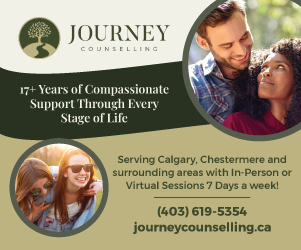Thriving neighbourhoods change the way we live, for the better. A healthy neighbourhood is a place where people can be safe, find support, discover friendships, explore new interests, live generously, build a future, and pursue meaning in all areas of life. This is something we create together, and when we create something, we expect that we will make mistakes along the way. Mistakes are not always a big problem because we learn and grow from them. However when mistakes become the norm, we can hamper our ability to create the thriving community we hope for. Here are six unhealthy neighbourhood habits that we can dodge together, and set our city up for new health and life.
Believing that someone else will save the day. When we expect that some outside agency, business, or government will create a great community around us, we will be disappointed. Great neighbourhoods are not something we buy or elect, it’s something we create, together.
Not Communicating. Relationships happen when we know how to connect with each other. In my neighbourhood we collect names and addresses of those who come to our annual block party. We then update our local directory and send copies to everyone who participated. We have a community Facebook page, and we email each other if we have a question. The more ways a neighbourhood communicates, the better they will be at working through challenges and caring for each other.
‘Meh.’ Indifference is a neighbourhood killer. Indifference will slowly destroy any relationship, and the same is true of communities. If people simply do not care if their neighbourhood is healthy or not, then gravity will take over. The neighbourhood will struggle. Decisions we make about our neighbourhood take time to show their fruit. But if we invest ourselves into making our neighbourhoods better places, it will pay off for everyone.
Leaving people in the dust. Changing a culture takes patience, presence, and persistence. All three are character traits that anyone can nurture in their own lives. Moving with intentionality is important because it allows for people to connect, engage, and buy in to new ideas. When we build neighbourhoods at a more human pace, we ensure that more people are able to come along for the journey.
Getting angry. Anger is the distance between what we wanted and what we got. When we expect someone to do something with us, and they do not, we get angry. We might become angry towards our own community when we expected one way of life, and experience another. When politics, or school boards, or businesses did not go the way we want, we might be angry. Getting angry does not solve a problem. But talking, learning, and engaging will often help bridge the gap between what we wanted and what we got.
Going it alone. There is no such thing as a Lone Ranger neighbour. The very idea of being a neighbour implies that there is someone else to be a neighbour with. Chestermere does not have community associations, but we do have enthusiastic people who are working hard to create an amazing city. When we work together we go farther than if we go it alone.
We will make mistakes as we work to create a better community. But if we work together, avoid angry reactions, move with patience and build relationships that matter, we will thrive and build the kind of city that we all dream of.





